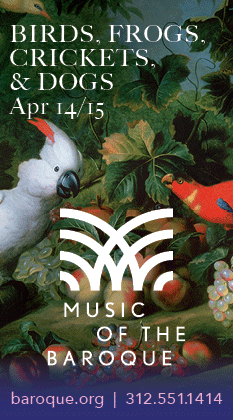Pianist Debargue makes an indifferent Ravinia debut

French pianist Lucas Debargue made his Ravinia Festival debut Thursday night at Bennett Gordon Hall. The 25-year-old reprised the program of Ravel and Medtner that earned him the Moscow Critics’ Award at the 2015 Tchaikovsky Competition, but Thursday night’s performance left it unclear what all the fuss was about.
Debargue opened with Ravel’s well-known triptych Gaspard de la Nuit, though it was listed second in the printed program. The work is based on three fantastical prose poems of Aloysius Bertrand, but the overall impression of Debargue’s performance was one of cautious restraint.
While he achieved a gossamer texture in the glistening accompaniment of the opening “Ondine,” it often subsumed the longer melodic lines and the movement’s climax sounded tepid. The central “Le gibet” (The Gallows) is meant to evoke the swinging of a suspended corpse, but Debargue’s genteel, straightforward approach failed to convey the horror of that image.
The pianist proceeded attacca into “Scarbo,” one of the most notoriously difficult movements in the solo piano repertoire, where problems accumulated. While Debargue’s technique apparently blew away the Moscow judges, the movement’s ubiquitous repeated notes were muddled and inarticulate Thursday night. The sweeping melodies lacked shape and again climaxes came off without force.
Nikolai Medtner’s Piano Sonata No. 1 in F Minor, Op. 5 received its belated Ravinia premiere following the Ravel. The opening Allegro begins with a theme evocative of Eastern Orthodox chant, which Debargue imbued with apt gravitas. The roiling movement has little to grab onto formally, however, and Debargue failed to organize the material into a digestible whole. Also, the glaring stray note he hit as he was pulling his hands away from the keyboard after the final chord would probably be enough to get him dismissed from an early round of the Tchaikovsky Competition.
The ensuing Intermezzo: Allegro had a wandering quality to it but again Medtner’s formlessness proved frustrating. The protracted ringing of a cellphone also obliterated any finesse Debargue might have brought to the movement’s closing moments.
The Largo divoto began austerely, and the Frenchman brought sunny bonhomie to warmer major sections. The brisk Finale had an intricate contrapuntal episode where Debargue’s technique truly shone, but the movement’s galloping dotted rhythms lacked snap and character. In the furious coda Debargue achieved an excitement that had been missing throughout the performance, but that he is clearly capable of producing.
By way of an encore Debargue played Scarlatti sonatas K. 208 and K. 24, both in A Major. These were the highlight of the evening, as the pianist probed the arioso expression of K. 208 and brought virtuosic esprit to K. 24. The final chord, however, unintentionally contained a fair number of notes that have no place in A Major.
Ravinia’s classical offerings continue with “Brahms Drama” at 7:30 p.m. on August 30 in the Martin Theater. André Watts, David Shifrin, and the Avalon Quartet will be joined by actor Jack Gilpin for music of Brahms and Schumann. ravinia.org/
Posted in Uncategorized





Posted Aug 26, 2016 at 1:23 am by Cyril Blair
Why does DeBargue get a review, but not Jonathan Biss? Is it merely because DeBargue is such a novelty? Do you have a policy on which solo recitals (and in which venues) get reviews?
Posted Aug 26, 2016 at 4:05 pm by Alla
You are so sadly deaf and so much far from musicality… stay away, write about soccer…
Posted Aug 26, 2016 at 9:17 pm by L Bernhard
Mr Sawyier makes it his mission to only pick on inconsequential features of Mr Debargue’s performance. This fine musician deserves better than having an incompetent critic who would probably find fault in a Michael Angelo’s sculpture because there is a crack in the stone. A totally meaningless account of a performance.
Posted Aug 27, 2016 at 11:43 am by MW
I was there!! It was a fascinating and fantastic recital. Debargue’s music-making is heavenly beautiful. Unlike many of the classical music today, there is ‘life’ in Debargue’s music. We need more musicians like Debargue to get the classical music out of crisis. Your unjust nit picking criticism is one of the reasons the classical music is facing crisis and at the edge of dying away. Music appreciation is art, not a dissection in the biology class. I encourage everyone to go and experience the uniqueness in Debargue’s music making.
Posted Aug 27, 2016 at 1:33 pm by Orthodox
Damn! Be a critic this is so simple thing!
The critic does not die on the stage, the critic does not beg for mercy His Majesty Piano, the critic not tired because he made fantastic recital in time.
It’s so simple – to write a crappy amateurish article.
Feed your octopus,this is your true destiny.